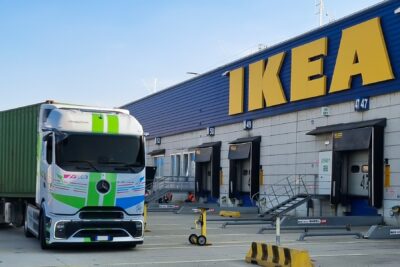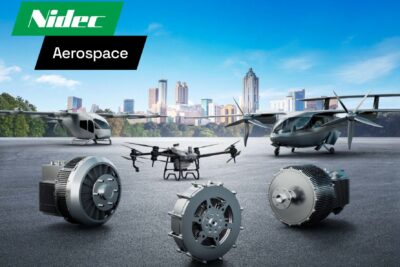German consortium advances the development of self-driving commercial vehicles
ATLAS-L4 aimed to ready a fully automated electric truck for hub-to-hub transport on motorways. This has been legally possible in Germany since 2021 with a law that enables autonomous driving on defined routes under technical supervision.
After three years of research and development, the twelve project partners from industry, science, software development and infrastructure have presented the results of their activities. “The autonomous truck in road traffic has become a reality thanks to the work of around 150 engineers,” said commercial vehicle manufacturer MAN Truck & Bus, one of the project’s main participants. Other partners on board included Knorr-Bremse, Leoni, Bosch, Fernride, BTC Embedded Systems, Fraunhofer AISEC, the Technical University of Munich, the Technical University of Braunschweig, TÜV SÜD, Autobahn GmbH and the Würzburg Institute of Transport Sciences (WIVW GmbH).
The project name ATLAS-L4 stands for ‘Automated transport between logistics centres on level 4 motorways.’ Level 4 autonomous driving, along the scale from one to five, means that the vehicles are driverless but limited to specific routes. At level 5, a vehicle must be able to cope with all traffic situations regardless of its location.
The go-ahead for ATLAS-L4 was given in January 2022, and the premiere on the road with a MAN truck took place last year after the German Federal Motor Transport Authority granted the first Level 4 test licence for a commercial vehicle manufacturer in April 2024.
The project has involved a lot of fine-tuning of the software: “The automation software in the vehicle was continuously optimised through regular releases over a long period of time and tested directly in practice,” explained MAN.
The participants set up the safety-relevant components for Level 4 architecture, including a redundant braking system, on-board electrical system and redundant steering. Other fields worked on were a validation concept, the commissioning of a control centre for technical supervision, and risk analyses and safety considerations in accordance with Level 4 regulations (including cybersecurity). The result of the project is a “prototype technology” that is now to serve as a blueprint for further projects and series developments.
ATLAS-L4 has thus produced a basic concept. According to those responsible, however, various detailed questions still have to be clarified for an autonomous truck in series production. “We have done valuable pioneering work by providing practical proof of the technical feasibility of autonomous trucks,” says project coordinator Sebastian Völl from MAN Truck & Bus. “These concepts are now being incorporated into further development work for the series development of autonomous trucks.”
Völl says Logistics 4.0 offers a lot of potential. “Driverless trucks as part of hub-to-hub automation for commuting between logistics yards could make an important contribution to greater efficiency and the avoidance of traffic jams and accidents.” Automation concepts also offer a solution to the shortage of drivers, which the industry has been suffering from for years. There is already a shortage of about 100,000 truck drivers in Germany.
In the USA, Aurora Innovation recently put an autonomous route between Dallas and Houston into operation. Not a pilot project but a commercial endeavour. Aurora Innovation plans to bring its automated driving solution (also in accordance with Level 4) into series production with supplier Continental from 2027 onwards.
Autonomous trucks are making headway elsewhere in the US. One such pioneer is Einride from Sweden. Back in 2019, German logistics group DB Schenker was using Einride’s fully electric autonomous T-Pod truck in Jönköping, Sweden, to transport goods on a public road with permission from Swedish authorities. In 2022, Sweden-based Freight technology company Einride received approval from the National Highway Traffic Safety Administration (NHTSA) in the USA to operate its Autonomous Electric Transport (AET) vehicles on public roads.
Just last month, Hyundai Motor Company presented the next-generation XCIENT Fuel Cell truck for the North American market and confirmed a partnership with autonomous driving company Plus. The announcements form part of Hyundai’s broader strategy to commercialise hydrogen-powered and autonomous trucks in the United States. At the beginning of this year, at the CES in Las Vegas, Nvidia announced that Toyota, Aurora and Continental will equip their vehicle fleets with Nvidia’s Drive technology. This concerns autonomous electric cars and also electric trucks.
In China, too, recent headlines in Chinese media proclaim, “The ‘spring’ of self-driving commercial vehicles is here.” Autonomous trucks have been put into operation in northern China but are still being tested for larger-scale rollout.
Now, thanks to ATLAS-L4, Germany has autonomous logistics pioneers in action too and is ready to compete for reliable and efficient applications in autonomous truck operations.





0 Comments